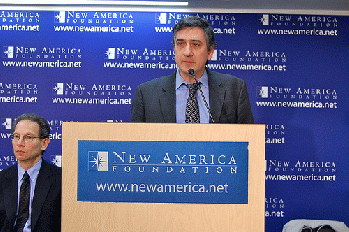Duluth, Minnesota (OpEdNews) February 9, 2019: No doubt our American experiment in representative democracy is indeed an experiment that could fail. However, our collective experiment somehow managed to survive the Civil War (1862-1865). So we might wonder, "What will it take to show that our American experiment in representative democracy has at long last finally failed beyond any hope of recovery?"
In effect, Michael Tomasky ponders something like this question in his new book If We Can Keep It: How the Republic Collapsed and How It Might Be Saved (Liveright/ Norton, 2019). He takes his main title from Benjamin Franklin's statement on September 17, 1787, the final day of the Constitutional Convention in Philadelphia. A lady asked him, "'Well, doctor, what have we got a republic or a monarchy?'" He replied, "'A republic, if you can keep it'" (quoted on pages xxvi-xxvii).
For Tomasky, the central question that he focuses on concerns the quality of our republic. However, even though he forthrightly argues that the quality of our republic is not high at the present time (from 1980s to the present), he does not argue that we are drifting toward monarchy. Just to be clear, he also does not argue that our American experiment in representative democracy has at long last finally failed.
Instead, Tomasky argues that the "representative" quality in our republic has been skewed and that certain things now need to be corrected. In light of his historical analysis of how our republic has evolved over the years, he suggests a fourteen-point agenda of things we can do to reduce the contemporary trend of political polarization (from the 1980s to the present) that he finds so disturbing. However, I do not find his fourteen-point agenda convincing (pages xvii-xvii; and pages 189-237), so I am not even going to discuss further, except once below in passing.
Instead, I want to focus on what Tomasky considers the problems to be with the political polarization from the 1980s to the present. Of course, I am not going to argue that there are NO problems. That line of argument would be absurd.
Instead, I want to call attention to Tomasky's own account of the previous period that he refers to as the Age of Consensus (1933-1980 almost half a century). Tomasky discusses this previous period in considerable detail (pages 61-151). Of course, even during this so-called Age of Consensus, the Republican Party had rabble-rousers such as John Birch and Barry Goldwater. So we should not be surprised that the Republican Party in the Tomasky's so-called Age of Fracture (1980 to the present) has rabble-rousers such as Newt Gingrich and Donald Trump.
Of course, as we might expect, Tomasky acknowledges certain examples of so-called polarization in earlier periods of American history forty-two examples, to be exact (July 1787 to 1932; listed succinctly on pages xi-xv; discussed on pages 1-59). Compared with the previous 145 years, Tomasky finds the thirteen examples of polarization for the period 1980 to the present (listed in pages xv-xvi) compared with only sixteen in the half-century period of the Age of Consensus disturbing and alarming.
But how is your math? Is the rate of sixteen examples between 1933-1980 (16 divided by 47 = 34%) significantly lower than the rate of thirteen examples between 1980-2016 (13 divided by 36 = 36%; the year 2016 is Tomasky's cutoff year for examples)? The two rates strike me as roughly comparable. So what exactly does Tomasky find so disturbing?
However, as I mentioned above, our collective American experiment in representative somehow managed to survive the Civil War (1862-1865). Consequently, I suspect that it will also somehow manage to survive the thirteen examples of so-called polarization between 1980 and 2016 that Tomasky discusses.
For Tomasky, our contemporary polarization is sub-optimal because "it's tribal" (that is, it involves people voting "along group lines"; page xxi). Tomasky says, "Now, we have party tribalism" (page xxi).
According to Tomasky, so-called party tribalism involves all people who say that they belong to one or the other major political party voting along party lines. But voting along party lines eliminates intra-party polarization and tends to invite inter-party polarization. However, Tomasky would prefer to see more intra-party polarization. Indeed, he sees this as the optimal alternative to so-called party tribalism.
I admit that the term "tribalism" does not sound attractive, especially when you operationally define it as eliminating intra-party polarization, as Tomasky does so define it. However, I am not willing to construct an alternative definition of "tribalism" just to set up a way in which I could argue against Tomasky's argument. Suffice it to say that I do not find the denigrating term "tribalism" attractive enough to use it in my own writings. Similarly, I also do not find the denigrating term "populism" attractive enough to use in my own writings.
In the 2016 presidential election, the crook Donald J. Trump, the crooked real estate developer who used legal bankruptcy to shaft people, was the Republican Party's presidential candidate. In both the primary and the general campaign, he drew large crowds to his rallies. Consequently, certain commentators described him as campaigning on a form of "populism" and/or "tribalism."
By contrast, former secretary of state Hillary Rodham Clinton, the Democratic Party's presidential candidate, rarely drew large crowds to her rallies. Consequently, commentators did not describe her as campaigning of a form of "populism" and/or "tribalism." Fine. I can understand that much. But do commentators use comparably denigrating terms to characterize the candidate of a major political party who does not draw large crowds to her political rallies? What kind of alleged -ism was she campaigning on?
The point of my thought experiment here is that commentators who use the denigrating terms "tribalism" and/or "populism" should be equal-opportunity-employers of denigrating terms to denigrate a candidate whose political rallies do not draw many people and do not inspire much enthusiasm.
(Note: You can view every article as one long page if you sign up as an Advocate Member, or higher).





